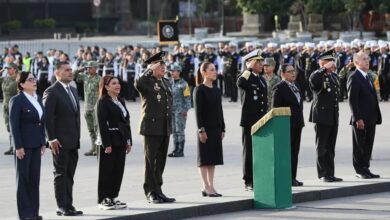Earthquakes in Turkey and Syria: What comes After the Rescue and How can the World Help?
Various organizations worldwide are asking the question after rescuing the victims of the earthquakes in Turkey and Syria: Now, what should be done to help them survive?.

Photo: Mahmut Bozarslan
LatinAmerican Post | Christopher Ramírez Hernández
Listen to this article
Leer en español: Terremotos en Turquía y Siria: ¿Qué viene después del rescate y cómo puede el mundo ayudar?
On February 6, a magnitude 7.8 earthquake and several aftershocks hit Turkey and Syria. According to official sources, there is already a balance of almost 50,000 deaths, and the count continues.
According to the Turkish Interior Minister, Suleyman Soylu, his country has more than 43,500 deaths. For its part, Syria has reported a total of 5,841 deaths: 1,414 in areas controlled by the Syrian government and 4,427 in areas controlled by rebel groups, according to information from the UN Office for the Coordination of Humanitarian Affairs.
What comes After the Bailouts?
However, although rescue teams arrived from all over the world to save the lives of the people who, due to fate, remained alive in the rubble or to remove the inert bodies from under the destruction, the international community has already You begin to wonder, "What's next?"
Faced with this questioning, the UN and its different offices have embodied various responses, both in economic figures and in groups of people who, for one reason or another, urgently deserve humanitarian attention.
Regarding the first, the United Nations called for the excellent world power to collaborate with at least one billion dollars to help more than 5 million people affected by the devastating earthquakes.
According to the international organization, financial aid would cover three months. It would serve as support so that aid organizations and the Government can focus efforts on meeting the population's needs in food security, protection, education, water, and shelter.
"Turkey hosts the largest number of refugees globally and has shown enormous generosity to its Syrian neighbors for years (…) Now is the time for the world to stand with the Turkish people, just as they have stood in solidarity with others in search of help," said UN Secretary-General António Guterres.
UNICEF made its call for attention, assuring that although the rescue actions were massive and courageous, it is time to think about how to help, in its specific case, the more than 4.6 million affected children and adolescents by earthquakes.
"UNICEF staff are and will continue to work in Syria and Turkey to make that difference, but financial aid is essential for our efforts to reach every girl, boy, and adolescent in need," said Fernando Carrera Castro, UNICEF representative entity in Mexico.
Regarding the humanitarian aid that can be offered, the World Health Organization (WHO) took the first step by distributing more than 110 tons of medical supplies in Syria's areas of greatest need.
"Once again, WHO is committed to supporting the Syrian people now, and in the days, weeks, months, and years ahead, to respond to this disaster and build a stronger health system for all Syrians," said Tedros Adhanom Ghebreyesus, director of the UN health agency.
He also welcomed that the United States (one of the countries that have collaborated the most in the crisis) has lifted sanctions on Syria (which has been experiencing a civil war since 2011) for 180 days.
The European Union did the same, an organization that has financed humanitarian actions in Syria with aid amounting to 27.4 billion euros since the civil conflict began. That has already provided 5.5 million euros for assistance in that country since the earthquakes occurred.
"Because of the seriousness of the humanitarian crisis in Syria, which the earthquake has exacerbated, the Council has today decided to adopt an additional amendment on humanitarian grounds to facilitate the rapid delivery of humanitarian aid further," the EU Council detailed.
You can also read: Rescue dogs: faithful and protective
And the Refugees?
The refugee situation is undoubtedly one of the most critical that this natural catastrophe has left. According to figures from the UN Refugee Agency (UNHCR), at least 15 million people have been affected by the loss of their homes, of which 1.7 million are Syrians living in that country under the figure of “refugees.”
“At least 5.3 million people in Syria need some form of shelter assistance: people already displaced by the conflict have been forced to flee their homes again, and some have lost their homes for the first time”, explains this United Nations office.
To counteract this situation, the UNHCR, with the support of other UN agencies and countries such as the United States and Turkey itself, have implemented various actions to help victims of displacement due to the war in Syria and thus prevent them from living a greater tragedy because of the natural catastrophe.
“UNHCR is working under the leadership of the Turkish authorities and other UN agencies and is responding with urgently requested support for refugees and host communities, including blankets, food parcels, kitchen utensils, mattresses, etc. Airlifts are bringing in more desperately needed supplies,” they report.
According to the UN and the countries that have sought to offer a dignified life to the Syrian refugees' victims of the earthquakes, the idea is to encourage these people to feel confident on Turkish soil or in safe areas of their country.
It should be remembered that several refugees have decided to return to Syria, given what they consider to be a better option than being revictimized on foreign soil. The choice is based on a scenario where they would return to their families and perhaps die in war rather than starve to death in Turkey.




